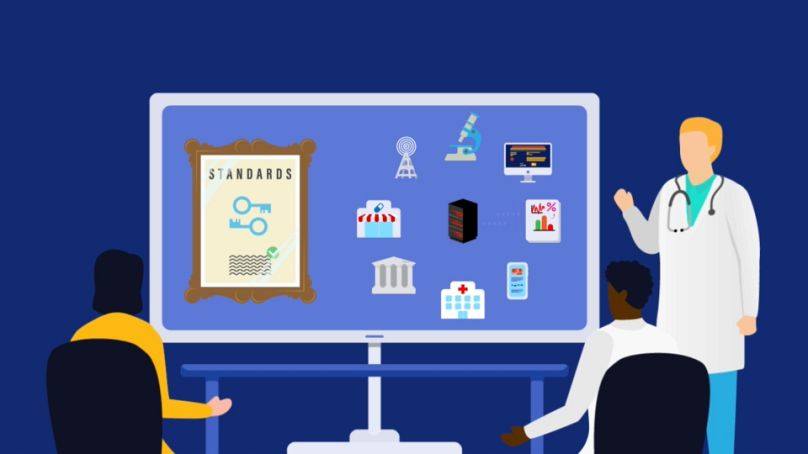Technology plays a central role in medical activities. However, the European health technology industry is fragmented, especially when it comes to rules, and operational standards across the continent. The European Health Data Space will pave the way for the digital era of medical data sharing
Technology plays a central role in medical activities. However, the healthcare technology industry is fragmented in Europe, especially when it comes to rules, terminology and operational standards across the continent.
 ADVERTISEMENT
ADVERTISEMENT
 ADVERTISEMENT
ADVERTISEMENT
The consequence? Businesses selling the machinery have a limited ability to operate as part of a single market.
One European standard
'Integrating the Healthcare Enterprise' is among the initiatives helping health sector to better connect with the market. IHE helps provide specifications and information that allow clinicians, industry and patients to share information with each other.
The main objective of IHE is not to develop core standards, but to standardise the adoption of the core standards most commonly used in healthcare.
In Montreux, Switzerland, an international event called Connectathon, gathered various different actors from the health sector to discuss common challenges they face and test their health products.
Their experiences and feedback are also taken into account when development and implementation stages for the upcoming European Health Data Space.
"The industry, through its products, acts as a bridge between legislation and the users of clinical data, whether they are patients or doctors. Synergy happens when institutions adopt interoperability frameworks based on international standards " explains Dedalus Global Interoperability Product Strategist, Lapo Bertini.
Data sharing challenges in the European Healthcare sector
But there are several challenges facing European national healthcare systems.
For example, there is a patient who regularly undergoes cardiac check-ups at one clinic. The issue arises if they need a check-up at another centre. The results and information pertaining to that patient's health are often not shared between the different healthcare centres.
IHE proposes a partnership between users, suppliers, and healthcare establishments, to set up protocols explaining how health data should be shared. However, creating such an interconnected framework is a complex task.
Stéphane Spahni is a Swiss Cyber Health expert. He works as a Systems Architect at the University Hospitals of Geneva and explains the difficulties of creating a centralised European framework.
What does it mean?
In digital health, 'Standards' and 'Interoperability' are critical to help the system run properly and provide patients with quality care.
Standards are a set of rules that enable communication between health systems, meaning focusing on language and semantics. Standards help establish a common vocabulary within the medical technology sector.
Meanwhile, Interoperability means exchanging data in a coordinated manner.
At the Swiss Connectathon event, dozens of medical products and software were tested by IHE experts to verify if they matched with protocols set up in several domains, such as Radiology, Cardiology, Patient Care Coordination and Laboratory Medicine, to cite but a few.
"The software creators taking part in the event aim to test the exchanges between their system and the other software systems, which are modelled on real use cases," says Anne-Gaëlle Bergé, a Connectathon Technical Manager for IHE Europe.
How would it work?
When it comes to authorizing access to patient health data, IT experts foresee a case-by-case option.
Anne-Gaëlle Bergé explains how the frameworks could work.
"We can imagine that consent will be by default and then it will be up to the patient to decide which health professional has access to which data. So, by either explicitly naming the practitioner, or a specific category of practitioners. On the other hand, a patient could say I don't want my data to be accessed, unless I'm admitted to the emergency room and they really need to access it to treat me."
The European Health Data Space initiative will add momentum to the digital transformation of the healthcare systems. Moreover, in that new scenario, sharing data with digital health companies will help to deliver more patient-centred healthcare solutions.












